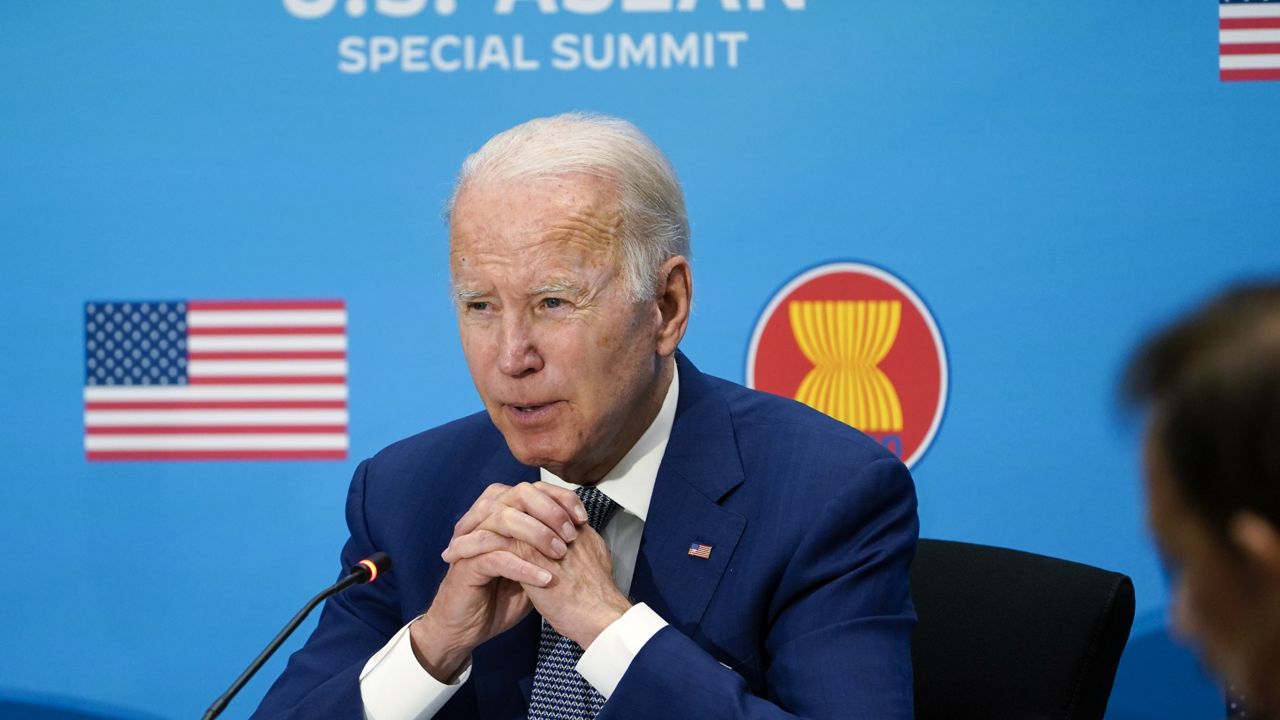President Joe Biden commemorated 45 years of U.S.-ASEAN relations at a State Department summit in Washington on Friday, thanking the assembled leaders for their participation in a series of wide-ranging discussions over the past several days.
"We're not only celebrating 45 years of partnership and friendship between ASEAN and the United States, we're launching a new era—a new era in U.S.-ASEAN relations," Biden said, later adding: "Discussions have covered a broad range of critical issues, including working together to keep the fight against COVID under control and to take climate action."
Biden on Thursday night welcomed leaders from the Association of Southeast Asian Nations to the White House for a dinner to kick off the two-day summit, the first meeting of the group to be held in Washington in its 45-year history. The ASEAN nations whose leaders attended were Brunei, Cambodia, Indonesia, Laos, Malaysia, Singapore, Thailand and Vietnam. The top leaders from ASEAN member Myanmar were barred, while outgoing Philippines President Rodrigo Duterte dispatched Foreign Affairs Secretary Teodoro Locsin Jr. to represent his government.
The visiting leaders met with Vice President Kamala Harris at the State Department on Friday for talks before speaking with Biden later in the afternoon.
The White House is trying to demonstrate that it is stepping up involvement in the Pacific even as the administration has been focused on the war in Ukraine. It announced that the United States would commit to more than $150 million in new projects to bolster Southeast Asia’s climate, maritime and public health infrastructure.
Though Biden did not mention the ongoing war between Russia and Ukraine in his open remarks on Friday, the president knows that finding consensus with ASEAN members on the Russian invasion could prove to be difficult.
Some ASEAN members — Vietnam, Myanmar, and Laos — for years have depended on Russia for military hardware. With the exception of Singapore — the only member of the 10-member group to impose direct sanctions against Moscow — the alliance has avoided criticizing President Vladimir Putin or Russia’s prosecution of the war.
Indonesia has been guarded in its public comments on the invasion, and the Philippines has made clear it won’t impose sanctions against Russia. Thailand joined a United Nations vote against the invasion of Ukraine but has maintained a position of neutrality in the war.
“Our hope is to see the war in Ukraine stop as soon as possible, and we give the peaceful resolution of a conflict a chance to succeed,” Indonesian Foreign Minister Retno Marsudi told reporters on Friday at the start of meeting with U.S. Secretary of State Antony Blinken. “Because we know that if the war continues, all of us will suffer.”
Indonesian President Joko Widodo, currently president of the Group of 20 — the world’s largest economies — has resisted Biden’s calls to bar Russia from this fall’s summit in Bali. White House press secretary Jen Psaki on Friday reiterated that Biden maintains his position that it “should not be business as usual at the G-20” and Putin should be disinvited.
The summit came just before Biden’s trip next week to South Korea and Japan — his first visit to Asia as president. He’ll hold talks with those two countries’ leaders and also meet during the trip with leaders from the Indo-Pacific strategic alliance known as the Quad, made up of Australia, India and Japan in addition to the U.S.
Biden has tried to put greater focus on improving relations with Pacific nations in his presidency, viewing a rising China as the most threatening economic and national security adversary to the United States.
But his attempt at recalibrating U.S. foreign policy has been complicated by the most serious fighting in Europe since World War II.



